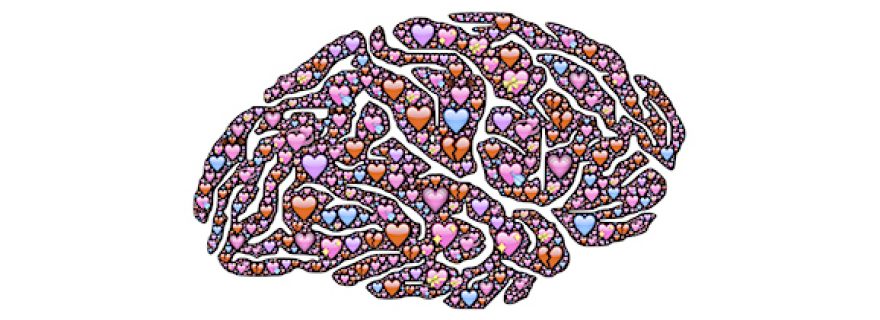The Power of Love: Could Love be a Cognitive Enhancer?
Common beliefs hold that “Love” hinders cognitive functioning, and those in love may be looked upon as if they have developed some unfortunate brain disease that will impair their performance, and hinder their careers, or lives. But what does science say?
There is a growing body of scientific work addressing the effects of love on human cognition. Fascinatingly, and perhaps not surprisingly, love seems to powerfully activate the brain’s so-called reward system with the release of dopamine. This is the case whether it is romantic love, maternal love, or even ‘agape’ unconditional love. This may explain why each different form of love can be described by the same word, as well as why each form has such a euphoric effect. However, the reward system is not just important for feeling pleasure, but it is now understood to be an integral part of the brain’s reinforcement learning system. Reinforcement learning mechanisms in the brain utilize the same type of “computations” that have been taking the machine learning world by storm, enabling artificial intelligence to achieve superhuman performance on various tasks. In fact, the techniques utilized by such companies as Google’s Deep Mind were, in part, inspired by findings from psychology.
Love may therefore prove powerful in helping to learn things, by reinforcing cues and behaviors that lead one towards the rewards of: one’s beloveds. Instructively, reinforcement learning systems are well understood to be the same systems that are hijacked by all drugs of abuse. This is because such drugs powerfully cause the release of dopamine in the brain in ways that mimic natural rewards, such as love. In fact, science is beginning to support that love and addictions function so similarly in the brain that love can be seen as a kind of addiction. However, it is perhaps one that, if used constructively, being properly directed, one’s feelings of love might powerfully help a person to learn all kinds of new things. This might include learning a new language for your beloved, learning to sing for them, to dance, or anything else that you might connect to the idea of the ones you love.
To further understand the potential of love to enhance cognition in various ways, it is instructive to understand some things about ‘cognitive control.’ Cognitive control is what enables people to adapt to different circumstances to achieve goals, or switch between goals. Within the realm of cognitive control, some researchers have argued that it relies upon a balance between persistence and flexibility: persistence being the ability to stay focused on one particular goal, and flexibility being the ability to change goals. Each pole of cognitive control can be useful, under different circumstances. Interestingly, when it comes to love, it seems that love is capable, under different circumstances, of enhancing both persistent and flexible cognitive control styles.
On the one hand, there is evidence that love can make people more flexible. This potentially provides benefits to cognitive functioning, such as allowing people to be more creative, at least when it concerns the brainstorming aspect of creativity, or what may be called divergent thinking. This may be because divergent thinking seems to be enhanced by being happier, which is something that love can be argued to provide in abundance. By capitalizing on the ability of love to make one’s mood soar, love may thus allow at least some people to be more flexible. Perhaps just thinking of the one you love then, may gift some people with enhanced creativity, and flexibility to switch among goals and try new things.
Additionally, there is some scientific evidence that love can also make people more persistent, at least under certain circumstances, such as at the beginning or end of relationships. Indeed, just choosing and sticking with one person, out of billions, is itself a form of persistence. Moreover, history, literature, songs, and poetry are filled with stories of the lengths that people will go to, for their beloveds. This can all be seen as goal-directed persistence. Folk wisdom, and science, thus both seem to back up that love can even help people to be extremely persistent, which can enhance the learning or accomplishing of numerous things.
And so, when it comes to strengthening learning, or expanding the spectrum of human cognitive control possibilities, few things may be as powerful as love. Perhaps time and more scientific research will truly tell, if you don’t already know yourself, the many Powers of Love ; ) <3
“Neither a lofty degree of intelligence nor imagination nor both together go to the making of genius. Love, love, love, that is the soul of genius.”
― Wolfgang Amadeus Mozart


0 Comments